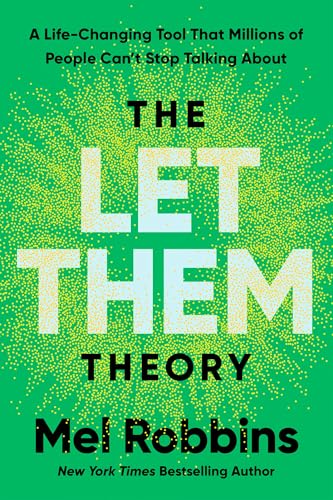Review of THE LET THEM THEORY
by Johny McFliggen, PhD Literature & Business, Oxford
Ah, the tantalizing mystery of "THE LET THEM THEORY" by Mel Robbins—a book that, as far as my extensive research suggests, is more elusive than the Loch Ness Monster at a photo shoot. One might ponder whether this is an avant-garde marketing strategy or the literary equivalent of Schrodinger's cat, simultaneously existing and not existing in the vast ecosystem of self-help literature.
Given Robbins' impressive track record with tomes like "The 5 Second Rule," where she distilled the essence of human procrastination into a mere five-second countdown—akin to a life-changing Apollo mission launch—it would be reasonable to assume that "THE LET THEM THEORY" follows a similar vein of personal empowerment. Robbins, with her characteristic blend of assertiveness and relatability, has always been something of a motivational alchemist, turning the lead of doubt into golden action steps.
If we were to speculate, based purely on Robbins' oeuvre and the tantalizing title, one might imagine this book could explore themes of relinquishing control—the "letting them" being a reference to allowing others to take the reins or perhaps permitting oneself to surrender to life's unpredictable currents. It conjures echoes of "The Subtle Art of Not Giving a F*ck" by Mark Manson, which challenged readers to focus their energies on truly meaningful pursuits. Robbins' take would undoubtedly offer her signature blend of tough love and actionable advice.
Despite the current dearth of information, the prospect of Robbins' latest work is enough to send ripples through the self-help community. Her knack for cutting through the noise with clarity and vigor has established her as a luminary in the field. Much like Ted Lasso's charming optimism or Don Draper's intoxicating charisma, Robbins has a way of grabbing your attention and not letting go.
In anticipation of what this mysterious manuscript might hold, one can only hope it will surface soon from the depths of obscurity, ready to challenge our perceptions and ignite a new flame of motivation. Until then, we are left with whispers and conjectures—an intriguing prelude to what promises to be another seminal addition to Mel Robbins' self-help legacy.
Purchase Link: THE LET THEM THEORY on Amazon



